On May 14, teachers and students of the School of Mathematics, Tianjin University gathered at the lecture hall at the Peiyangyuan Campus of Tianjin University to attend an academic report presented by Professor Zhou Xiangyu, an Academician of the Chinese Academy of Sciences and the Academy of Sciences for the Developing World. The lecture was chaired by Sun Xiaotao, Dean of the School of Mathematics.
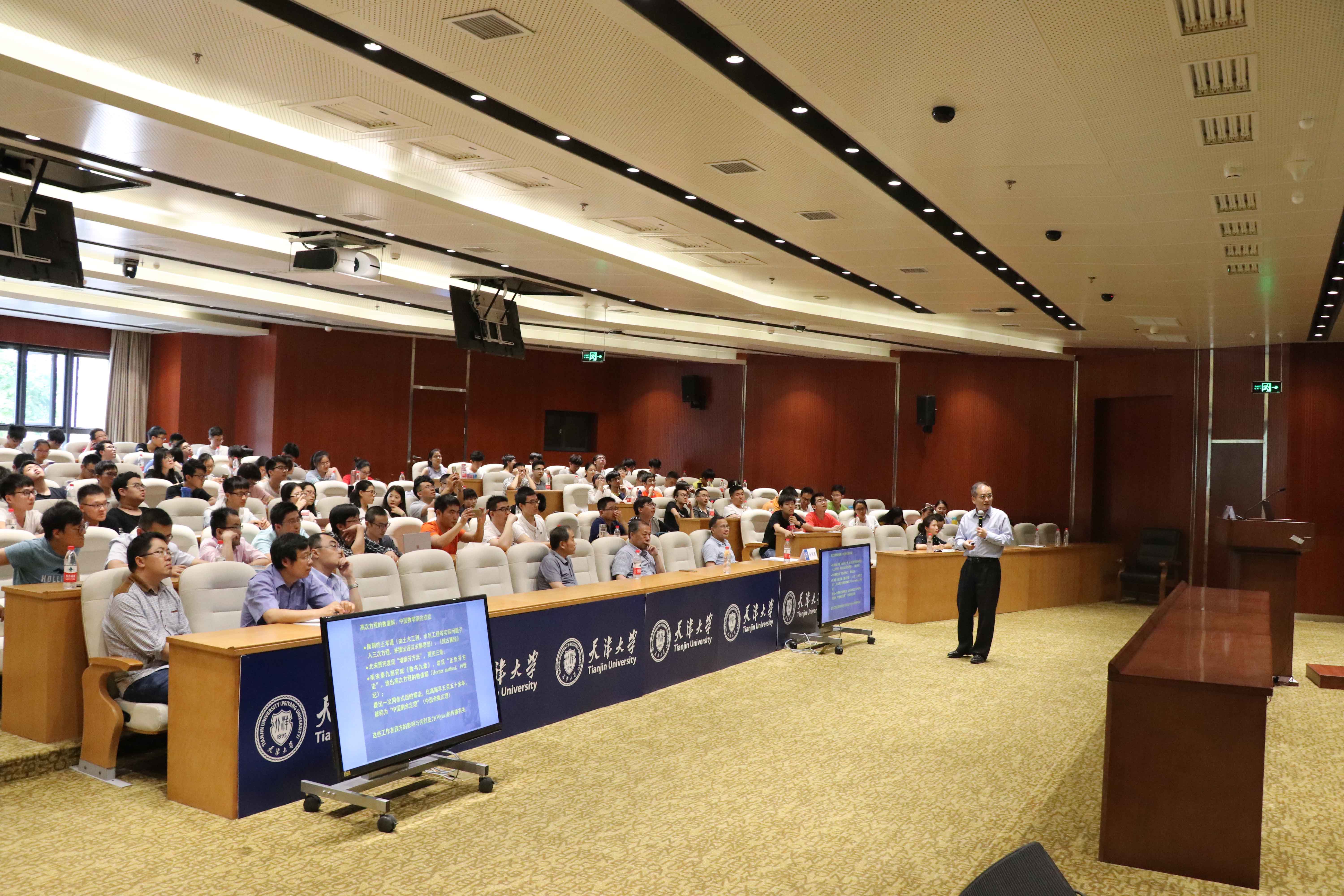
The lecture took us on a magical journey from discovery of Pascal's Triangle, to complex functions widely used in many disciplines, from the ancient rod-arithmetic based on bamboo sticks to the more profound discoveries of Chinese ancient civilization. All these topics straddled time and space and collided with amazing sparks at the Peiyang Mathematics Lecture.
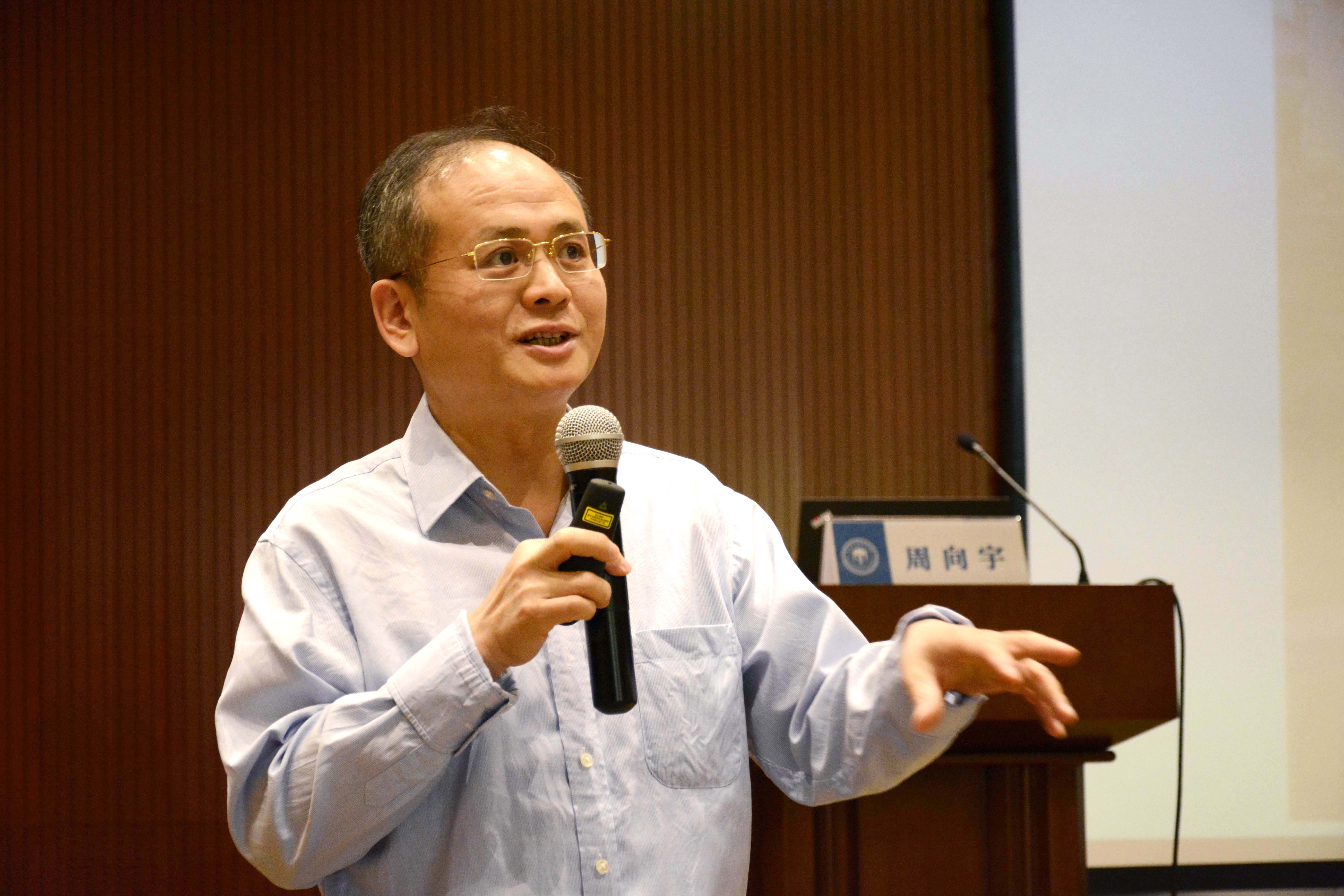
The lecture began with the origins of complex numbers. Professor Zhou used the radical solution of the cubic equation as a clue, and described the motivation to study complex numbers and the history of their birth. As early as in the Tang and Song Dynasties of China, the numerical solution of higher-degree equations were obtained by Wang Xiaotong's “Jigu Suanjing” (the most ancient work solving the cubic equation in ancient China), Pascal's Triangle, and Qin Jiushao’s “Mathematical Treatise in Nine Sections”. Over the following hundreds of years, the names of Western mathematicians dominated the history of complex-number development. "To obtain a real root, is to detour through imaginary numbers", Cardano found complex numbers to solve perplexing mathematical problems; Bombelli introduced complex numbers to solve previous problems; Wallis used geometric methods to interpret imaginary numbers; Girard, Euler, d'Alembert, Gauss, etc. proposed and proved the basic theorems of algebra. These mathematical pioneers made imaginary numbers a member of a large family of the numerical system and deepened complex number theory.
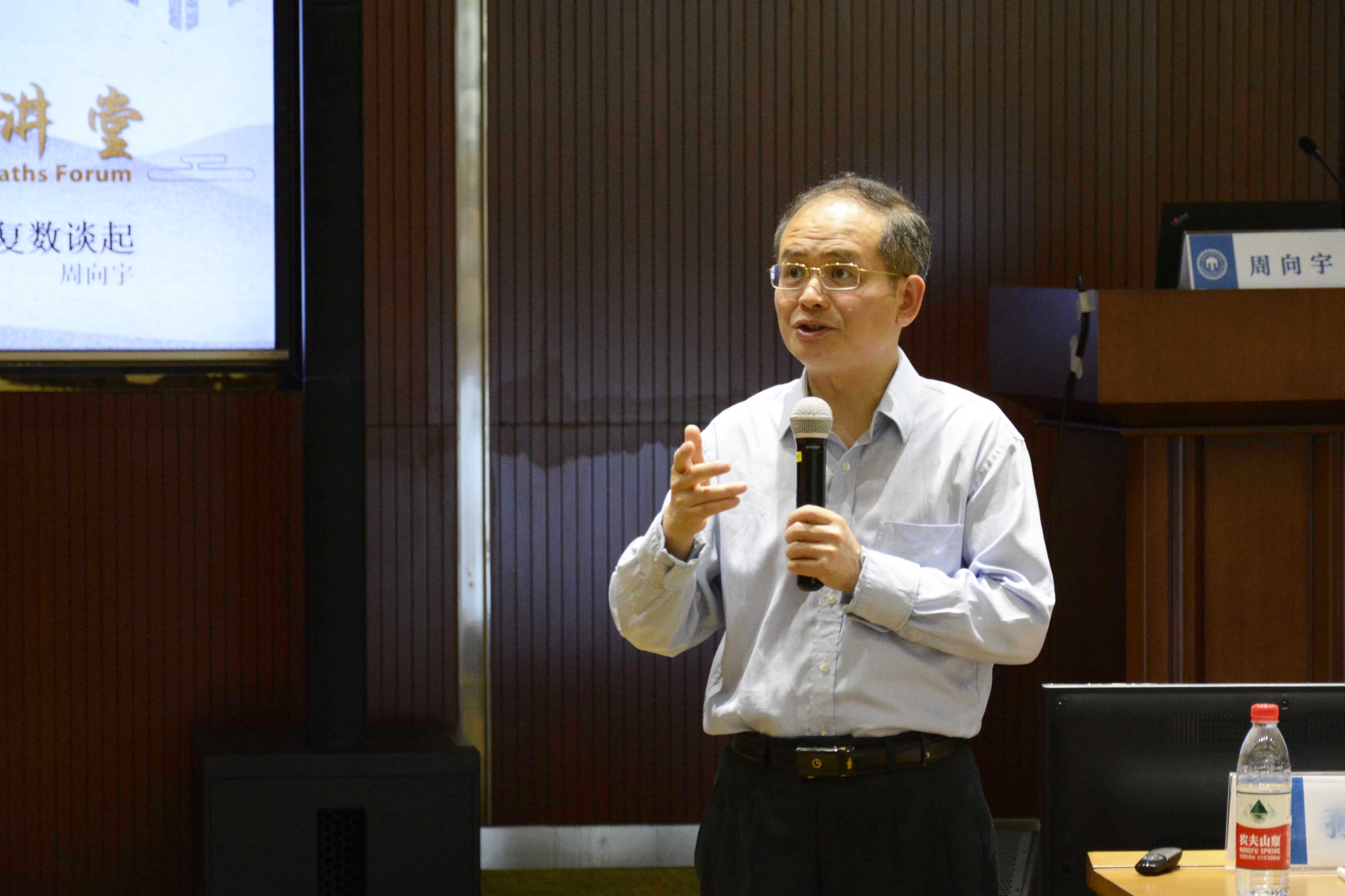
Professor Zhou elaborated on the geometric, vector and matrix interpretation and the algebraic structure of complex numbers and their development from quaternions and biquaternions. When it came to the magic of complex numbers and complex functions, he mentioned that the theories of complex numbers and complex functions not only triggered many problems that seemed to be irrelevant to imaginary numbers, such as the k quadratic sum, Fermat's Last Theorem, and the distribution of prime numbers, but also went deep into the wide application of other disciplines such as celestial mechanics, physics, and information science.
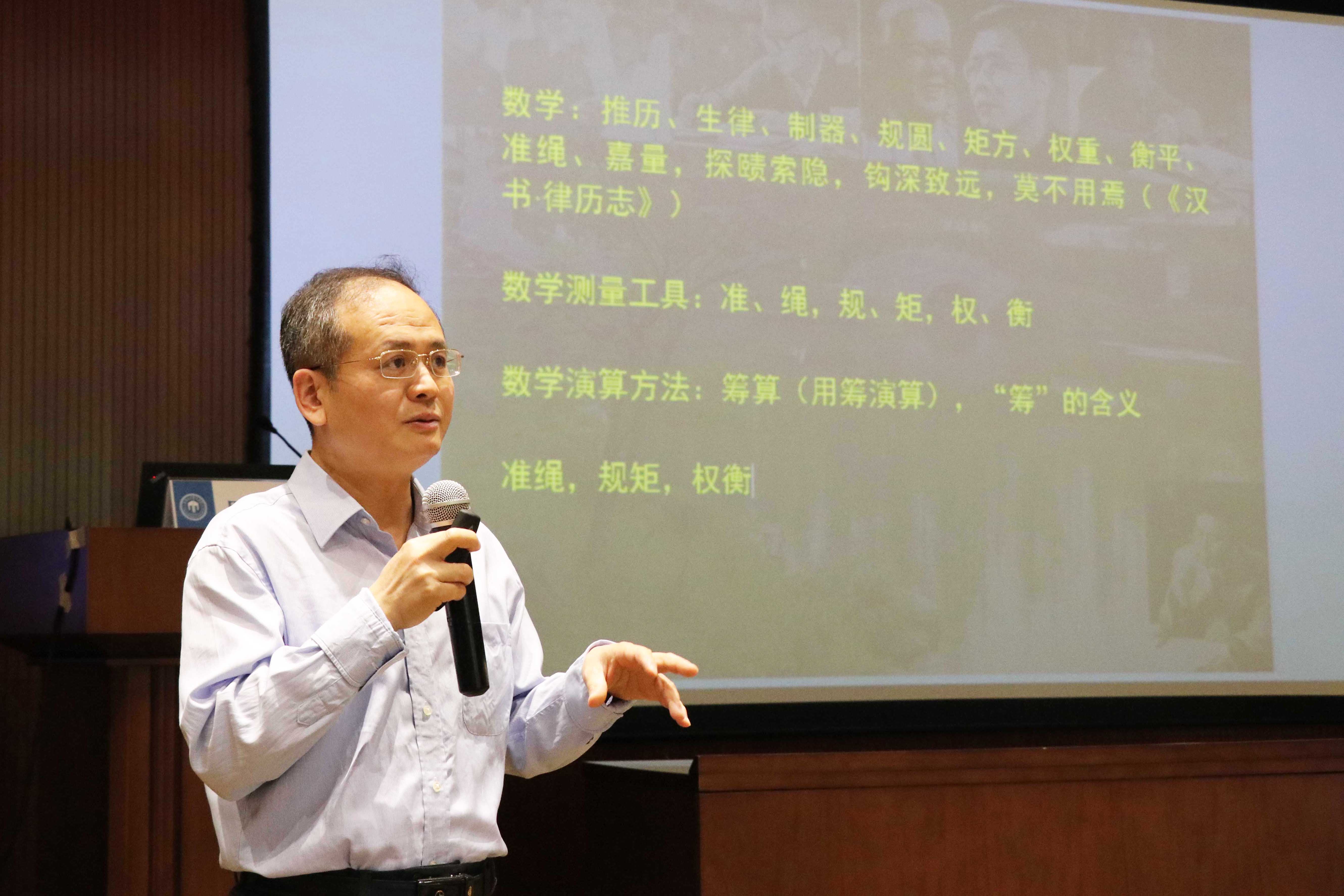
After his interpretation of the development of complex numbers, Professor Zhou opened up another mystic door for listeners from the perspective of the evolution of the concept of numbers, the contribution of ancient Chinese mathematics, and the integration of calculation and Sinology. The decimal system, counting, mathematics, and measurement tools thousands of years ago became vivid in his easy-to-understand interpretation. He quoted a large number of idioms or ancient Chinese sayings such as "Chou (chip)" and "Shen (rope)" and shared his unique insights in understanding Chinese culture and Chinese language from the perspective of mathematics. He also explained that Chinese culture has always respected rigorous, strict, precise, and accurate mathematics and emphasized mathematical thinking, methods, and abilities, which triggered a strong interest in the academic elements of traditional Chinese thought among the teachers and students present.
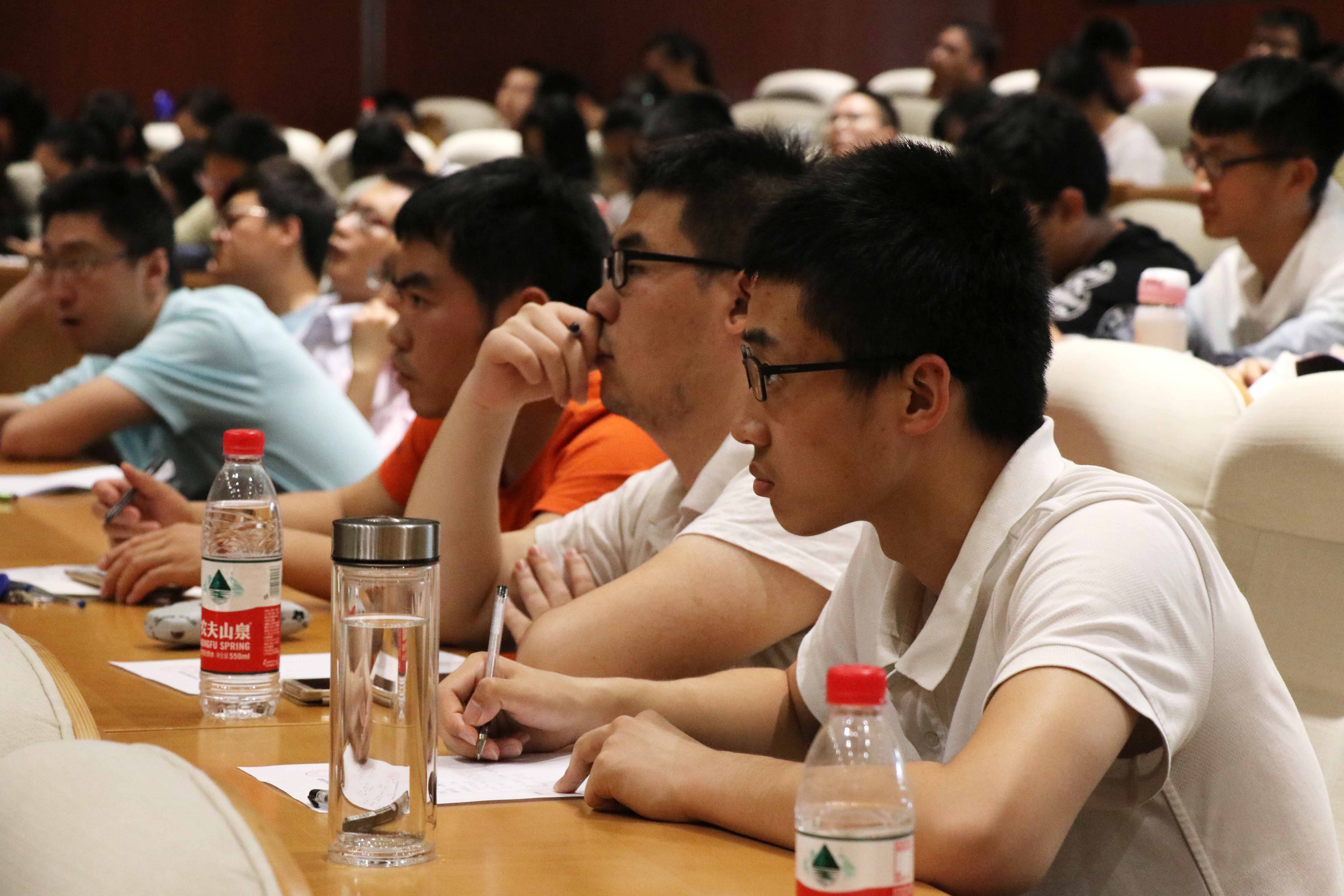
When describing the original form of mathematics, and then taking an overall look at complex functions, it was not difficult to find that it is closely connected with many mathematical branches such as geometry, topology and functional analysis. Similarly, it was two thousand years from the advent of the Apollonius conic curve to its use in the study of the laws of planetary motion. Chuang Tzu said: "Everyone knows useful things, but knows nothing of the value of uselessness": rom "phantom" in the public eye to indispensable "practicality," Professor Zhou used the words of the Book of Changes to tell us the true meaning of scientific research: " Delve into the abstruse, and probe into the profound truth." That is, only by exploring deeper truths, searching for hidden issues, and forming knowledge can we go further. The “useful” seeds buried in seemingly “useless” research often carry a strong and prolific vitality, waiting for scholars who try their best to study the nature of things and to explore it.
Professor Zhou showed the development in China of the theory of functions for several complex variables, including the works of Mr. Hua Luogeng, a pioneer of research in function of several complex variables and Mr. Lu Qikeng, Mr. Hua’s student and Mr. Zhou’s mentor. He also briefly introduced his work such as Demailly’s strong openness conjecture and applications of multiplier ideal sheaves and the optimal L2 extension theorem and its applications in recent years.
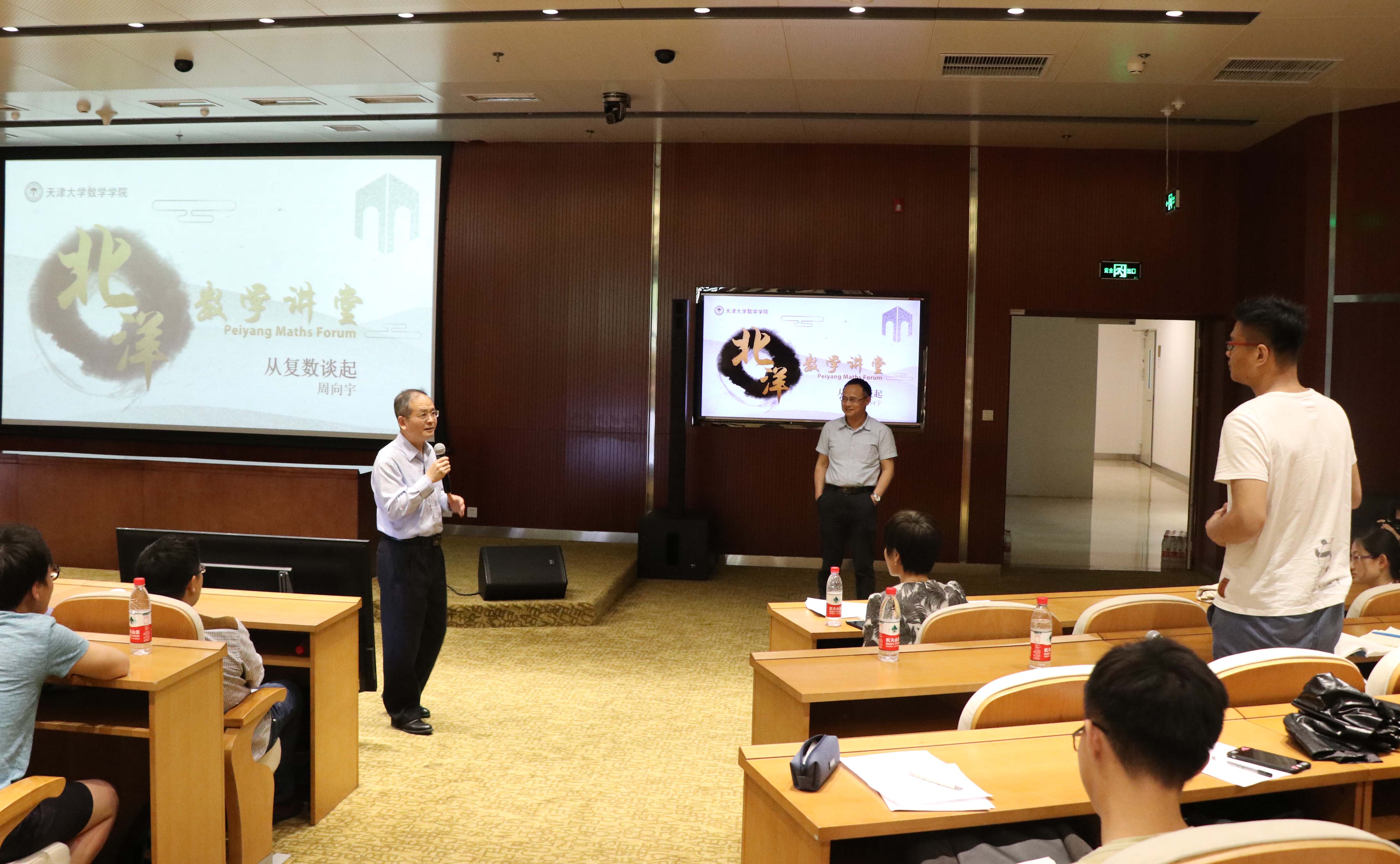
During the question session, some students questioned the exhaustion of “numbers”. Professor Zhou thought that quaternions and biquaternions seem to have been exhausted in a narrow sense but the concept, extending to other categories such as groups and domains in the generalized level, is endless. Faced with the rapid rise of interdisciplinary studies, some students suspected that the development of mathematics will advance by leaps and bounds. Professor Zhou responded that such a high degree of the penetration of mathematics into other disciplines and their close connection is overwhelming. Pure mathematics seems to be “useless” but the foundation of practical science and technology and hot areas exactly lies in pure mathematics and it is rapidly developing a healthy and prosperous momentum to continue to advance the progress of human civilization. The last question proposed by students was how to consider the depth of a certain branch of mathematics and the breadth of mathematics in so many branches of science within their own learning experience. Professor Zhou stated that due to the vastness of the current mathematical universe, it is difficult enough for leading mathematicians to know a single branch, so his suggestion was not to be confined to a certain direction or a certain method but to be open and pay attention to the connections with peripheral mathematics branches. When you carefully experience the comprehensiveness, crossing-over, unity, beauty and grandeur of mathematics, you will acquire unprecedented inspiration.
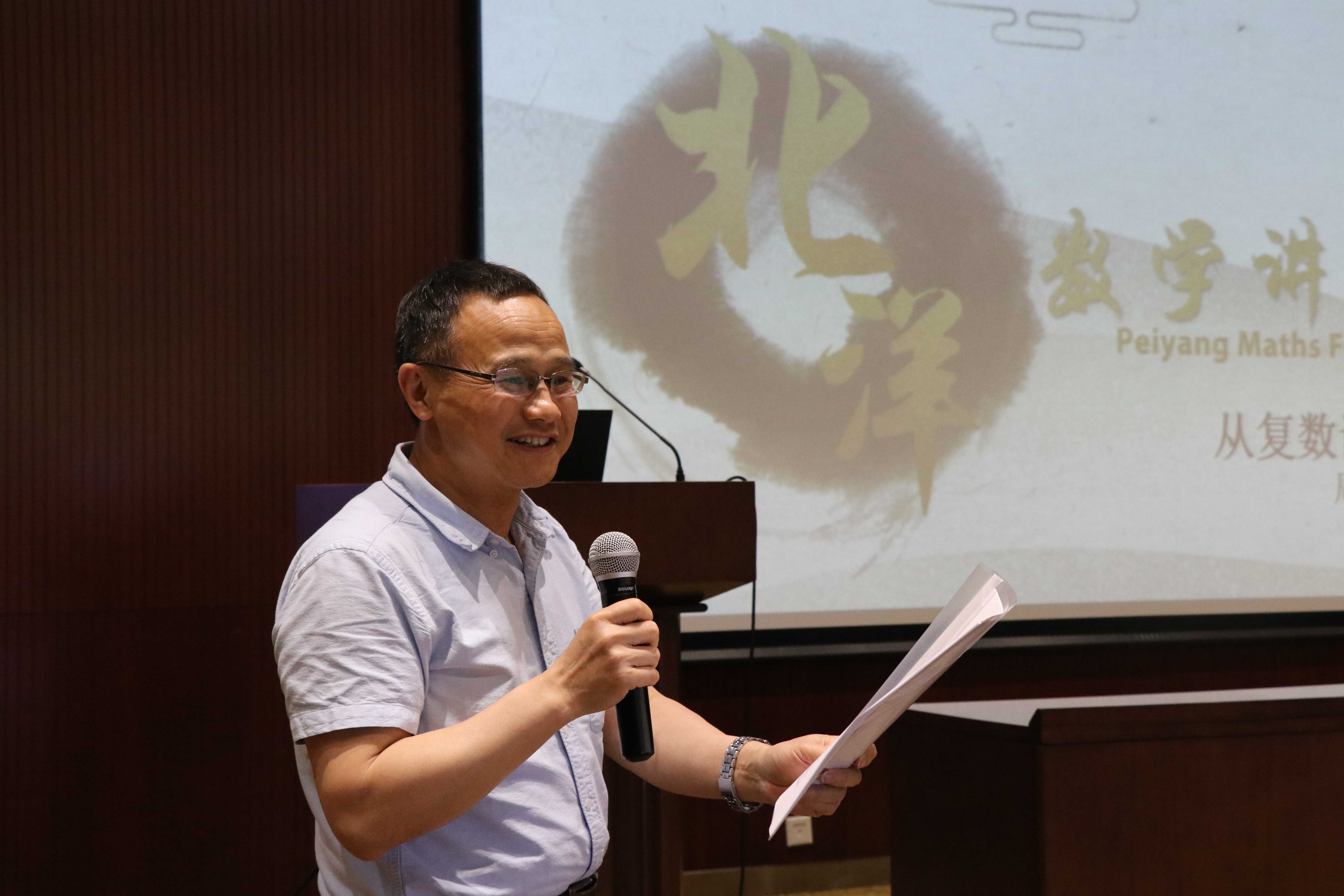
The applause of audience brought down the curtain on the Peiyang Mathematics Lecture. The teachers and students were all immersed in the past and present history and development of complex numbers, the stories of the Chinese and foreign pioneers, ancient and modern, of mathematics and relished the apparent contradictions of “usefulness value” and “uselessness value”. In the end, Sun Xiaotao suggested to the students that they should learn "uselessness value" first and strengthen their cultivation of mathematics before they are concerned about "usefulness value". Only in that way can they overcome all the problems in mathematics and society.
Add: Building No. 32, Tianjin University Beiyangyuan Campus,No. 135 Yaguan Road,
Haihe Education Park, Tianjin, 300350
Email: math@tju.edu.cn
Tel: +86 (0)22 27402850
Copyright © 2017 School of Mathematics,Tianjin University. All Rights Reserved